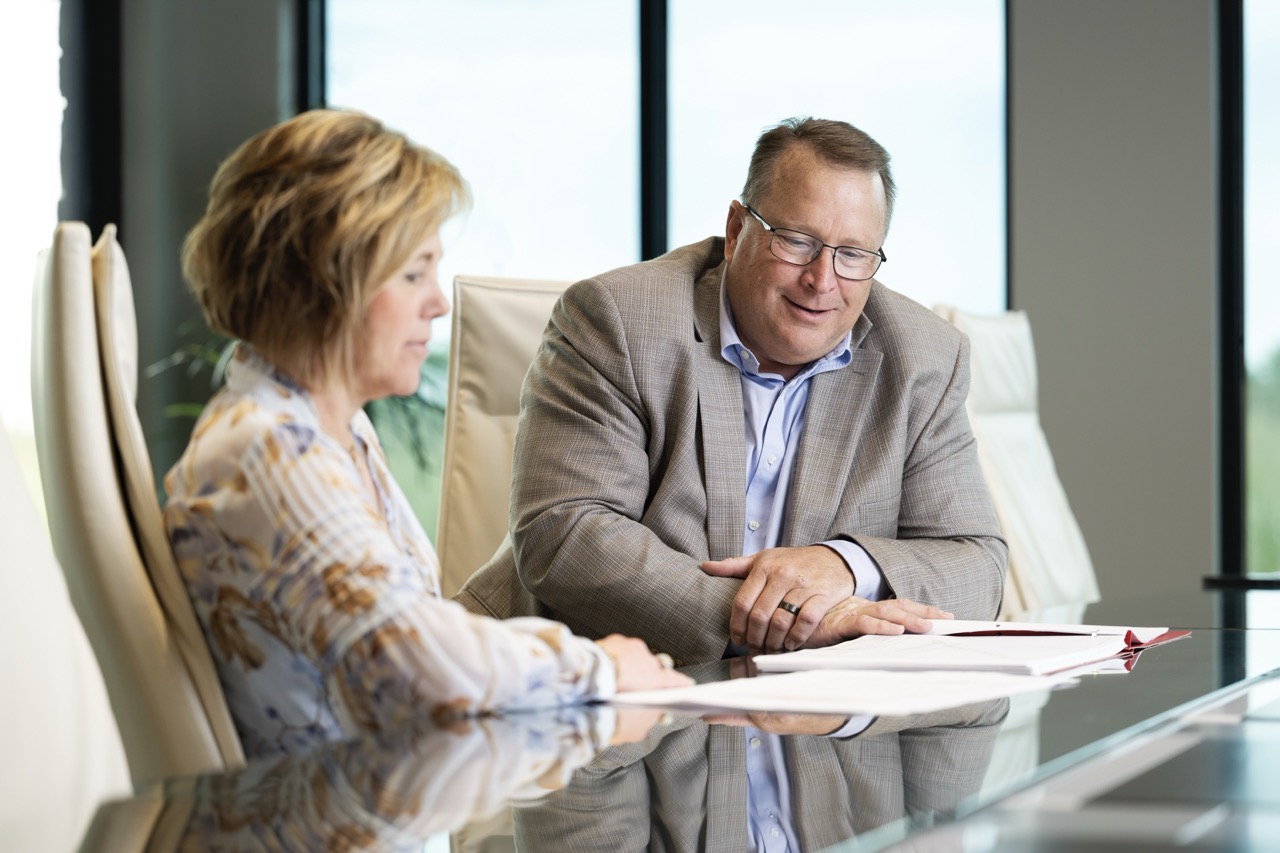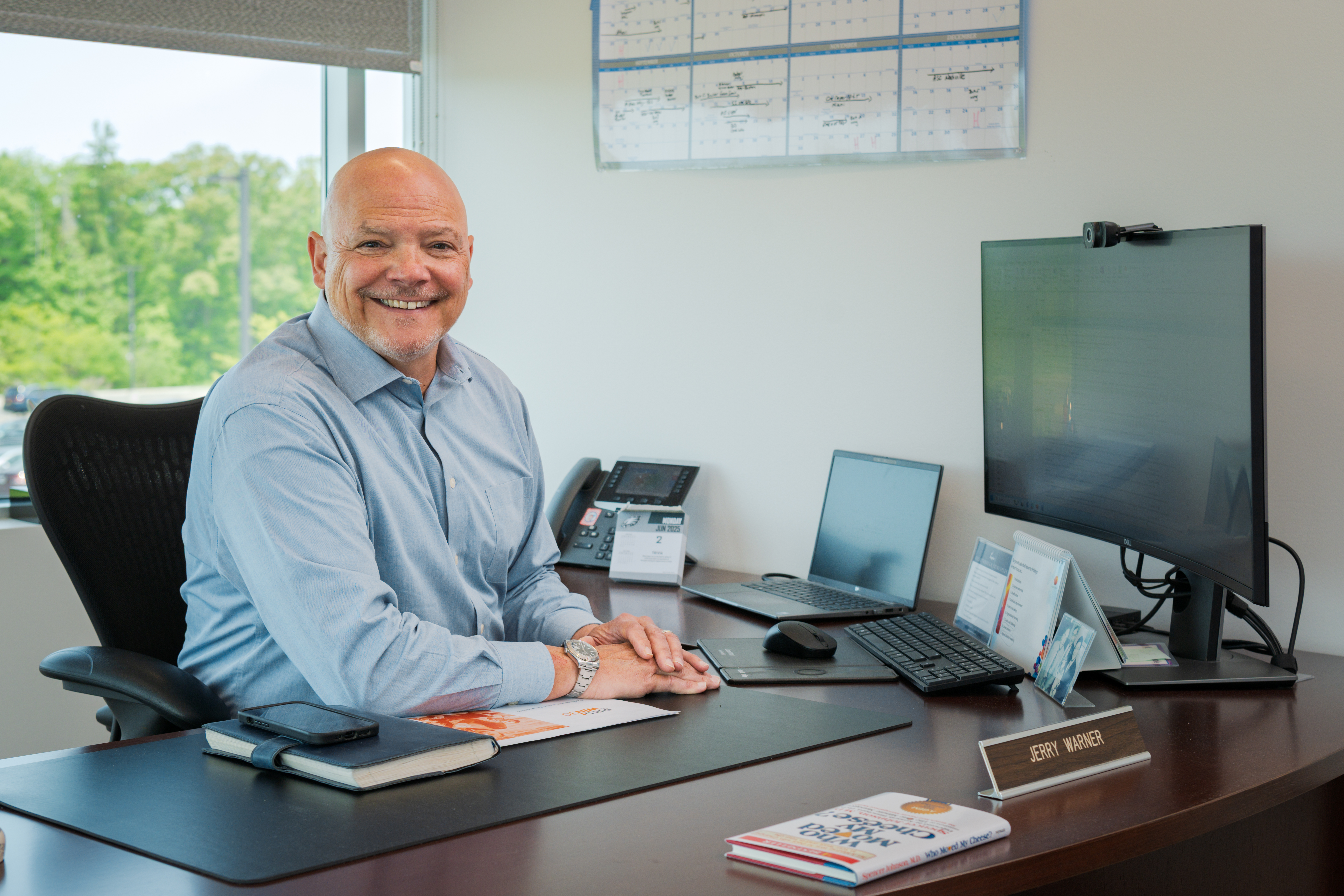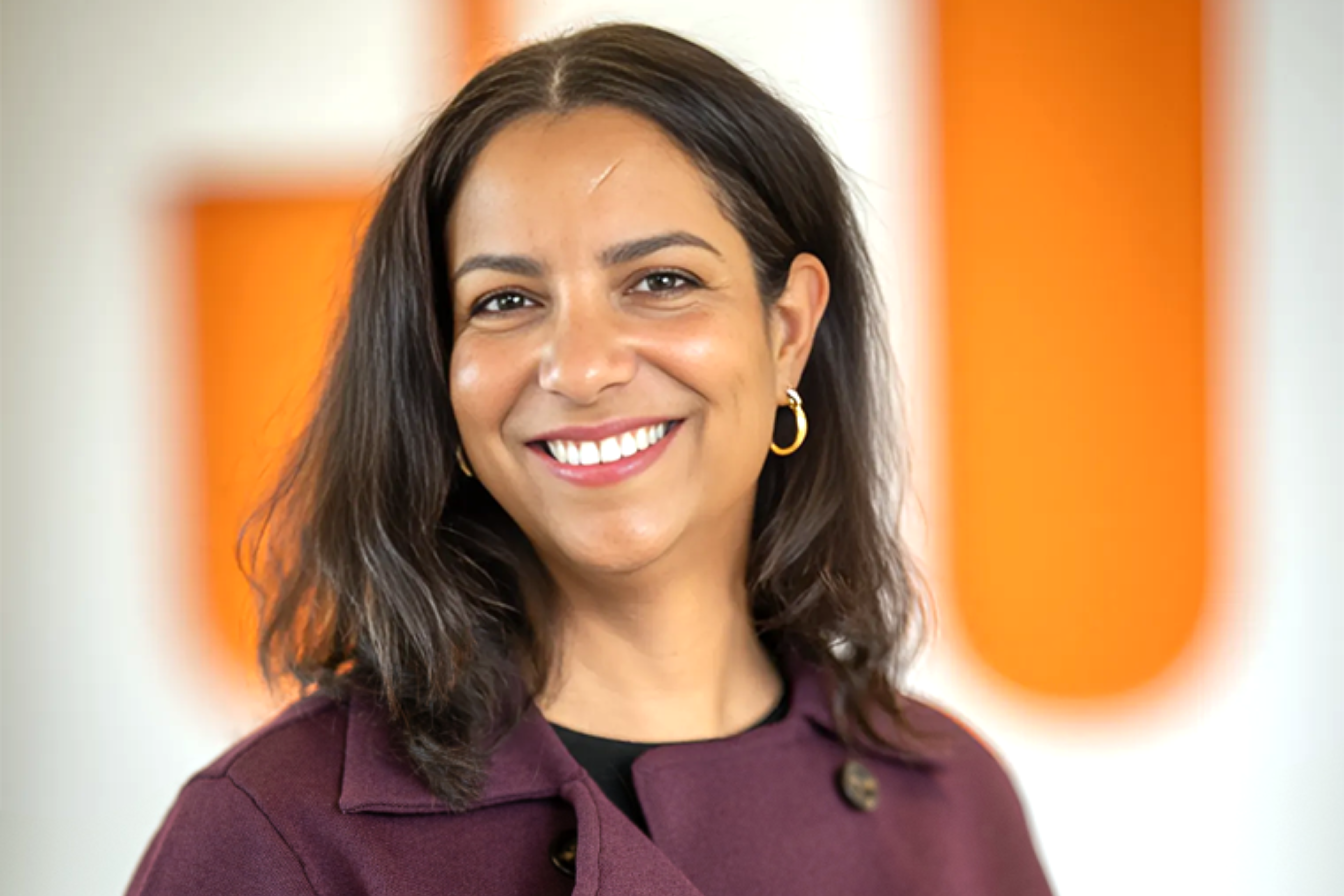Crisis, Meet Your Match
Plenty of stories could be written about the tech innovations Synchrony CEO Margaret Keane has championed while at the helm of the consumer financial services company. This is a different kind of story, though, one about leading a Fortune 500 company through an unprecedented public health crisis and achieving the kind of impact that transcends an income sheet showing nearly $3 billion in annual profits.
As the number of COVID-19 cases began rising in the U.S. and around the world in early 2020, companies were faced with an increasing number of decisions and a dwindling amount of time in which to make them. Ms. Keane opted to avoid overthinking and instead empowered others to take decisive action.
Moving the Ball Down the Court
Ms. Keane has honed her leadership skills and work ethic throughout a career that began with an entry-level job at Citibank that she took during college. She spent 16 years working her way up at the company, before joining GE Capital in 1996 as quality leader for Vendor Financial Services.
At GE Capital, Ms. Keane held a number of leadership roles, and in 2004, she became CEO and president of GE Capital, where she led the retail card platform. She took on the duties of CEO and president of GE Capital Retail Finance in 2011, and, as CEO, led both the 2014 initial public offering of Synchrony (formerly GE Capital Retail Finance) and its separation from GE Capital the next year.
The arrival of COVID-19 demanded strong leadership, the kind of swift executive decision-making and clarity of purpose that PowerPoint presentations and lengthy meetings only impede.
“I’m a ‘Let’s move the ball down the court’ kind of person,” Ms. Keane says. “I think you could overanalyze everything, and there was so much unknown here that you just have to say, ‘Here’s what we’re doing—and where we’re going.’ Share on X”
Getting thousands of employees set up to work from home was a massive undertaking, but it was made easier by allowing people to take ownership of the process.
“I’m a ‘Let’s move the ball down the court’ kind of person. I think you could overanalyze everything, and there was so much unknown here that you just have to say, ‘Here’s what we’re doing.’” —Margaret Keane, CEO, Synchrony
“I think we did a really good job of saying, ‘OK, experts, go do it.’ And we didn’t debate it. We just said, ‘This is how we’re going to rock. We’re going to get everyone home.’”
Keeping employees and their families safe by setting up remote work arrangements enabled call center associates to take calls at home without the risk of virus spread and the disruption that would cause.
It was also a smart business decision.
“We really wanted to stabilize our operations, because we deal with a lot of partners. We represent their brands in many ways, and we needed to have good customer service through this,” she says. “We needed to be able to answer those calls and deliver for the partners.”
Synchrony has rebuilt teams to better focus them on various core tasks, such as running day-to-day call center and IT operations, analyzing the business landscape in the coming months and assessing the validity of prepandemic time frames for strategic initiatives.
Too Much Communication? Inconceivable!
It would not be wrong to call Ms. Keane the company’s communicator-in-chief. Since transitioning its employees to work from home, Synchrony has rolled out multiple means of staying in touch with its workforce of more than 16,000. They include video town halls and weekly videoconferences featuring infectious disease experts, a steady drumbeat of email updates and a COVID-19 resource hub on the company’s intranet.
Synchrony made the switch from teleconferences to video calls because Ms. Keane intuited that employees would be comforted by seeing the company’s leadership.
“I worked on that with the team and said, ‘I think it’s really important for people to see me and the leadership team because people want to know that things are going to be OK.’ You have to have this very delicate balance of ‘Look, this is really tough stuff we’re dealing with, but things are going to be OK.’ And you’ve got to constantly communicate that in a lot of different ways.”
The company’s recent rollout of Microsoft Teams—a messaging platform that features chat, phone calls and video—provided Ms. Keane with another channel for personally connecting with employees whose excellent work has been brought to her attention. Seeing Ms. Keane’s name pop up in a Teams call catches many employees by surprise.
“They’re like, ‘Margaret, did you call me by mistake?’’’ she says. “I responded, ‘No. I called to thank you.’”
As the weeks of remote working turned into months, Synchrony’s leadership continued to reassure employees who wondered what a return to work would look like and when it might happen. Ms. Keane makes it clear that the first employees to return will be volunteers. Those who have health concerns for themselves or their family members will not be expected to return to the office until they feel it is safe to do so.
More than anything, Ms. Keane wants employees to know that their concerns are being heard and taken seriously, and that things will be all right—maybe even improved.
“We made sure the organization knows we’re a strong business. We’re going to be here after this is all over. How do we make sure we’re building this company to be even better coming out of this?”
Compassionate Leadership
Since its founding in 1932, Synchrony has developed a culture of caring that Ms. Keane believes is one of its strongest values. That culture extends beyond the company’s pandemic response. American Banker ranked Ms. Keane No. 3 on its list of the 25 most powerful women in finance in 2019, specifically calling out Synchrony’s commitment to expanding opportunities for employees by reimbursing them for college tuition and piloting tech boot camps. The idea, Ms. Keane says, is to encourage employees to develop new skills, even if that means they leave Synchrony. Teaching and health care are two areas the company added to the tuition reimbursement program in order to meet community needs.
“That was a big decision, and it’s a commitment to the community that we’re going to give back because these are areas that they need,” she says. Most of Synchrony’s employees work in one of the company’s call centers. The pay for customer care team roles starts at $15 per hour; benefits include medical and dental
insurance, retirement and other perks. The company also offers mental health support and resources, encourages use of flexible time off for all employees, and launched a virtual summer camp for Synchrony children. If Ms. Keane seems to understand these employees’ concerns on a visceral level, it’s because she has been in their position— literally. Nearly 40 years ago, Ms. Keane began her career working in a call center.
“Our actual call center reps are not only stressed themselves, but then they hear all day long from people who are very stressed,” she says. “So I knew that we had to make sure we get them in a good place where they could do their jobs without feeling the stress of coming into the office and catching the virus.”
Synchrony’s response to COVID-19 went beyond managing its own business challenges to creating a grassroots initiative involving consumers, employees and partners in business and philanthropy. Its #GearUp campaign creates and distributes homemade face masks and face shields to front-line health care workers and first responders.
“I felt very strongly that our culture, which is a very caring culture, needed to rally around something that actually made people feel hopeful and thoughtful,” she says.
The GearUp initiative encompasses a range of efforts, but they have one thing in common: They are built on relationships. Synchrony, which Ms. Keane notes has financed a vast number of sewing machines, offered statement credits to its “Sewing and More” credit card holders so they can buy supplies for making and donating face masks, gowns and gloves. When the company realized some employees had 3D printers, they created a team to make 3D-printed face masks and shields. The Synchrony Foundation has also deepened its partnerships with national non-profits by committing $5 million to help communities hit hard by the pandemic and an additional $5 million to help small businesses recover and grow.
Key to getting GearUp going, says Ms. Keane, was the organizational prowess of Denise Cullinan, a vice president in the marketing department.
“We were able to quickly reach out to a network through our partners, which was pretty easy to do, but then we had to determine where do you send it? How do you send it? How do we ship it?” Ms. Keane says. “I don’t know if Denise is a one-woman powerhouse, but she helped pull all that together and drive that forward.”
Staying Grounded and Relatable
Ms. Keane, who grew up in the borough of Queens in New York, credits her background—chiefly her hard-working blue-collar family with a large number of first responders—for her strong respect for everyone who works at the company.
“People say, ‘You’re so regular.’ I think I have a very strong center of where I came from, and I don’t forget that,” she says.
“I have people right now out on the front line, and I keep grounded in that. When you do that, you have an appreciation and empathy for everyone in the company.” —Margaret Keane
“I have people right now out on the front line, and I keep grounded in that. When you do that, you have an appreciation and empathy for everyone in the company, whether it’s our employees or the people who clean our buildings.”
Her awareness and strength—to say nothing of playfulness—prompted the sister of a Synchrony employee to sew a Wonder Woman mask for Ms. Keane, which the down-to-earth CEO has been known to wear while working.
Not that she considers herself any sort of superhero, but Ms. Keane’s steady hand and unapologetic decisiveness have helped Synchrony weather its most recent share of challenges. The company has endured the financial crisis of 2008, the 9/11 terrorist attacks and other substantial tests.
But COVID-19 is different, she says, in a way that has called upon Synchrony to prioritize employees’ physical and mental health.
“I think what we have focused on is real empathy. It’s not just about the person who works for you. It’s about the whole family, and we’ve really approached everything we’ve been doing around safety, understanding all the stress they’re dealing with and really trying to take care of them through this.”
This article appeared in the Fall 2020 issue of Insigniam Quarterly. To begin receiving IQ, go here.



